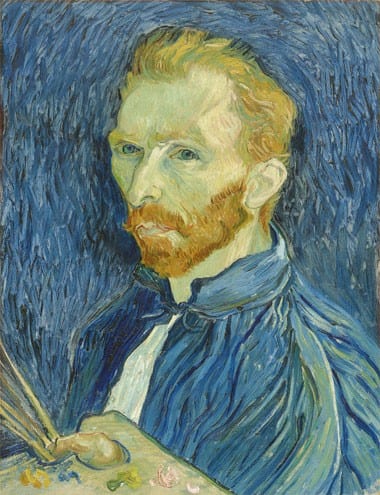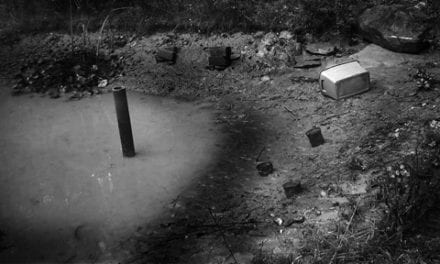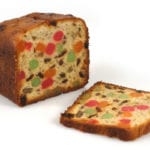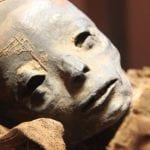“How come you never sold any of your work, Mr. Go.”
“Call me Vince, young fella’. That way you won’t keep mispronouncing my name. It’s Gogh, pronounced Goff.”
The young interviewer from the high school newspaper wrote a note on his pad.
“You asked a pretty personal question, son. I suppose the next thing you’ll want to know about is my missing ear. Huh?”
The kid got red in the face. “Sorry, sir, but my journalism teacher told us to ask for information that’ll hold readers’ interest. Uh, maybe I should begin with when and where you were born?”
“Don’t fret, kid. If you did your homework, you would know I was once a pastor and a preacher, a missionary, too, so I’m used to folks making mistakes. Lord knows, I’ve made enough in my life. So, go ahead and ask away, whatever you want. I’m happy to help with your assignment.”
The student opened his mouth, but before he could say anything, Gogh continued, “I want to correct one thing you said, though. I did sell one painting.”
“That was to your brother, I read somewhere, sir. If you want to be a successful painter, shouldn’t you sell a lot more?”
Gogh sighed. “Yup, you’re right, but one is better than none. But let me tell you why I never sold a painting—‘cept that one. I don’t try. You can believe that or not, but it’s the truth. And like I said, remember I used to be one of God’s ministers.“
The painter ignored the interviewer’s skeptical look. “Believe me, son, it’s hard to paint masterpieces, day in and day out, and just as hard to sell ‘em, too. Most people, even critics, can’t recognize a great work of art until an artist’s been dead for 50 years or more, and I’m not gone yet.”
“I’ve been thinking about it, though,” Gogh muttered under his breath. He continued, “Marketing my work would have taken me away from what I really want to do, and that’s paint. And don’t forget, I’d also have to find a gallery to show my work and that isn’t easy, what with the wild colors and rough brushstrokes I use. I’d also have to do a lot of other extra work, like selecting the right frame for a canvas, taking care of the bookkeeping, like what sold, when and to whom, keeping track of expenses for tax purposes, and corresponding with possible buyers… .”
“Don’t talk so fast, sir. I’m trying to write everything down.”
Gogh paused before he continued. “Having a roommate like Gauguin ain’t easy, either. Sure glad he decided to take a vacation in the South Seas. Attracted by all those naked women, I guess. Uh, don’t write that down, young man. I wouldn’t want his wife to find out about that.”
Gogh waited until the kid crossed out a sentence. “You won’t learn this in school, son, but having to promote my work woulda’ kept me from getting all my ideas down in paint, and I got lots of possibilities to work on. Did you know I do about a painting a day?” He puffed up his chest and waited for a compliment but the kid was too busy writing.
Gogh put his hand on the reporter’s arm. “Don’t write this down, young man, but I don’t expect to live long. That’s why I have to get everything done fast. Another reason to not waste time peddling my work.” Gogh’s face turned yellow and green, like one of the portraits sitting in a corner of his hospital room.
The kid put his pencil down. “Off the record, sir, but for my own information, isn’t it true that if you don’t sell anything there’s no way of knowing if you’re any good? How can you be sure you’re a real artist if your work isn’t hanging in a museum in the Louvre, on the wall of some rich guy’s mansion, or selling for thousands of Francs at an auction? My teacher told us that success is mostly based on how much money you make. ‘That’s the capitalist way,’ she said.”
Gogh bent his head in thought for a minute, looked up, and winked. “Well, all I can say, sonny, is time will tell.”






















